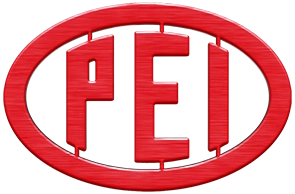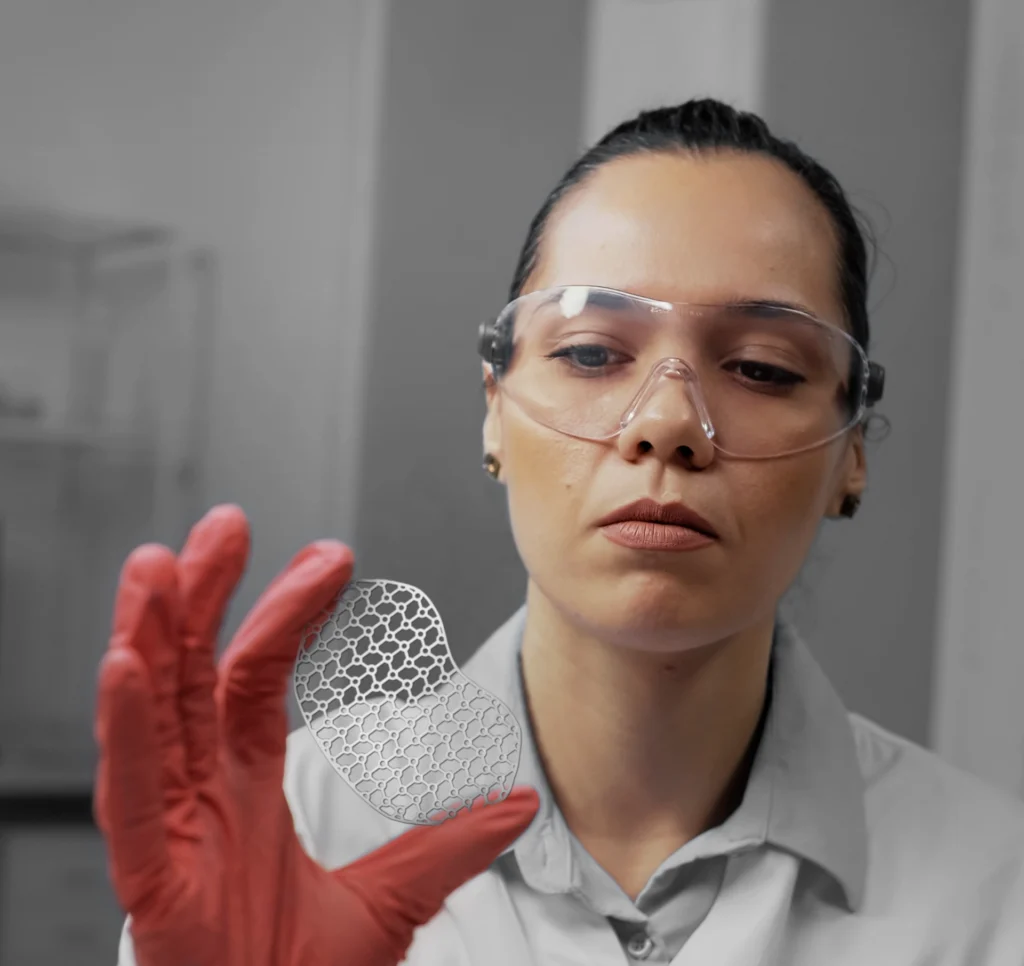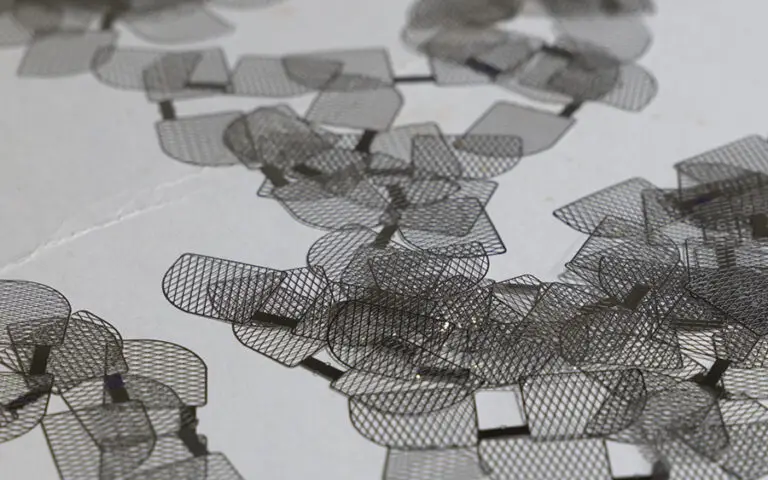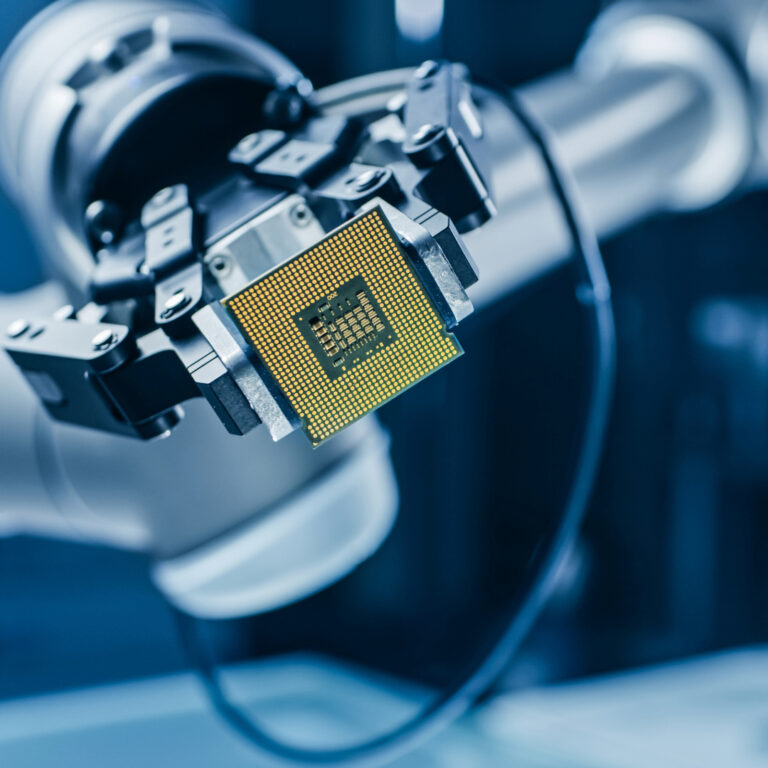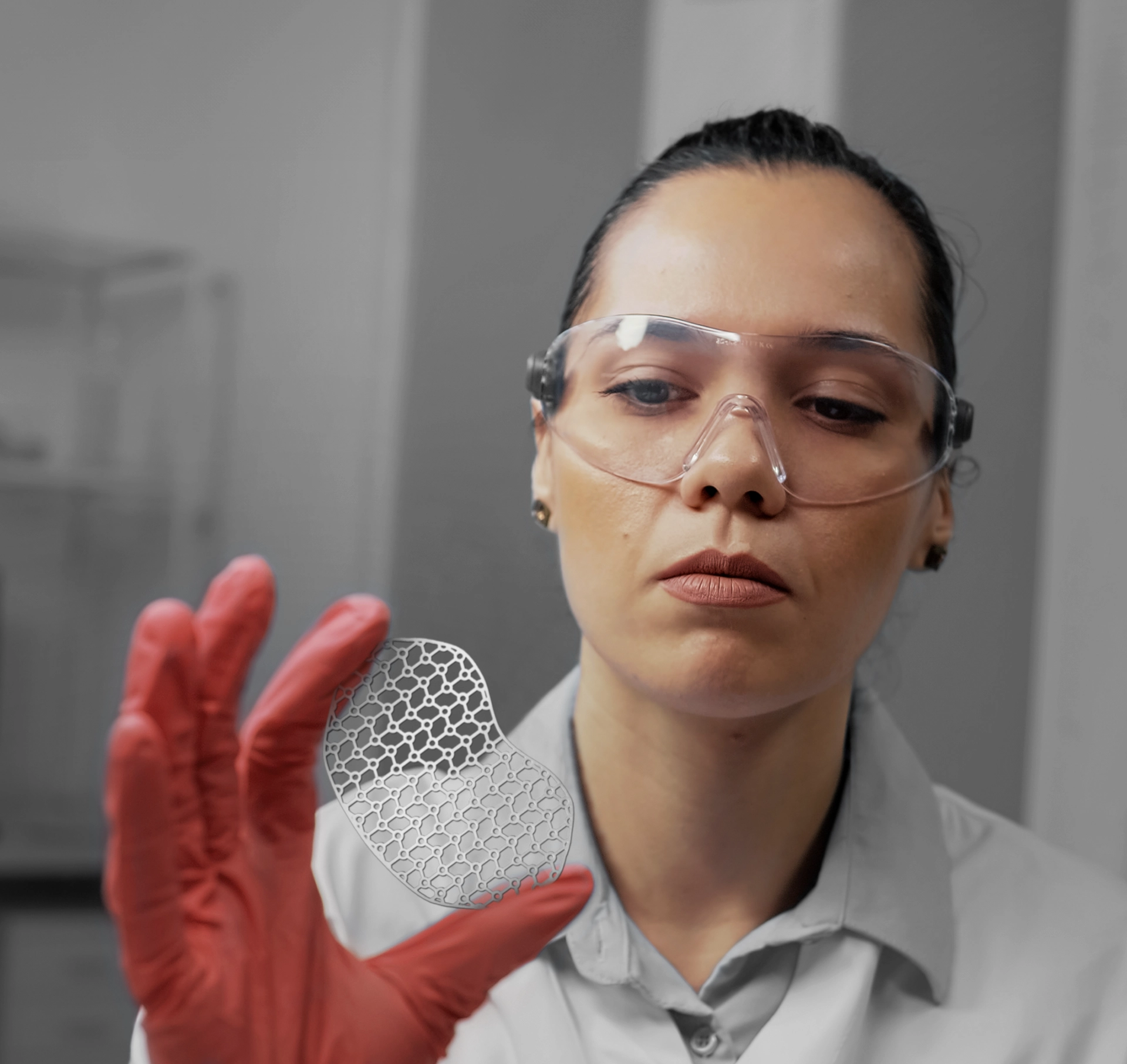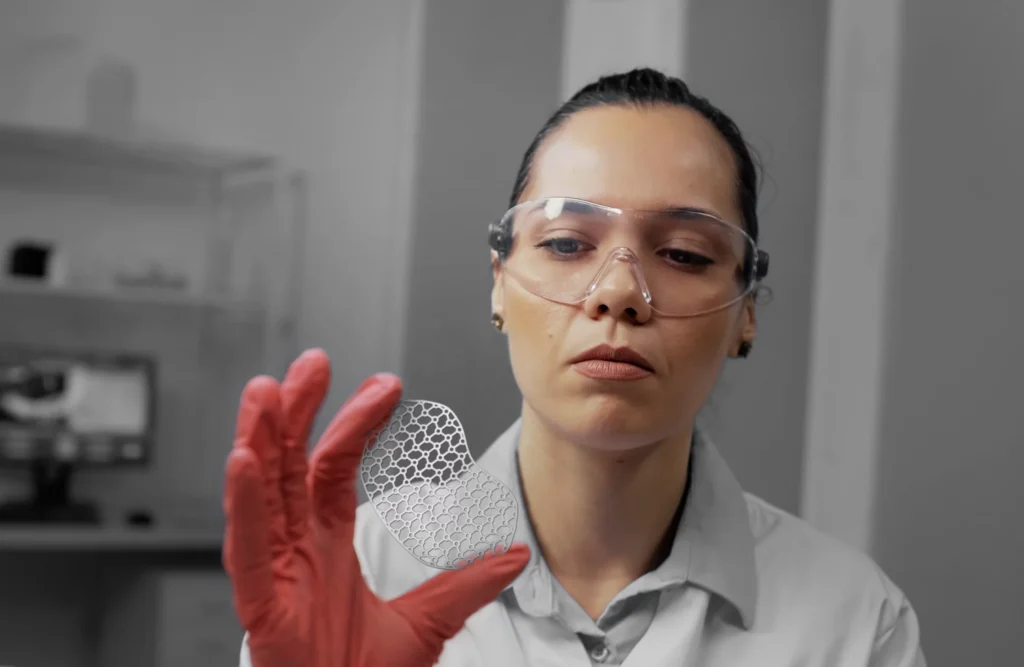
With no room for error, modern medical devices must be designed and manufactured using only the best quality materials and meet stringent safety standards.
In the ever-evolving landscape of modern medicine, the quality and precision of medical devices can be the difference between life and death. With no room for error, modern medical devices must be designed and manufactured using only the best quality materials and meet stringent safety standards.
With its exceptional strength, biocompatibility, and corrosion resistance, titanium has emerged as a material of choice for crafting critical components in medical devices. However, the intricate geometries and stringent quality requirements of these titanium parts present unique challenges in the manufacturing process. That’s where chemical etching comes in. Enabling the production of high-quality titanium parts and components with unparalleled precision and consistency, the chemical etching process has revolutionized the production of medical parts and pushed the boundaries of modern healthcare.
PHOTOFABRICATION ENGINEERING (PEI) has been the trusted team for medical implantables and equipment components manufactured with precision, consistency and expertise. For over 20 years, they’ve been manufacturing intricate, burr-free, stress-free etched metal parts for various medical devices.
In this blog, we delve into the world of chemically etched titanium and explore the pivotal role it plays in ensuring the exceptional quality of medical device parts in modern healthcare.
Experts in etched titanium medical components
PEI’s photochemical etching and working with titanium experience dates back decades. Our expert manufacturing team has pioneered processes to chemically machine pure titanium, delivering intricate and burr-free metal parts, and our partnerships with leading medical device companies continue to open up new possibilities for the medical industry.
While working with pure titanium and titanium alloys is what sets us apart, we’re well-versed in working with stainless steel and many other various metals. We are ever committed to delivering quality products, ensuring that every medical component is crafted with unparalleled precision and durability while adhering to the rigorous standards set by the medical industry.
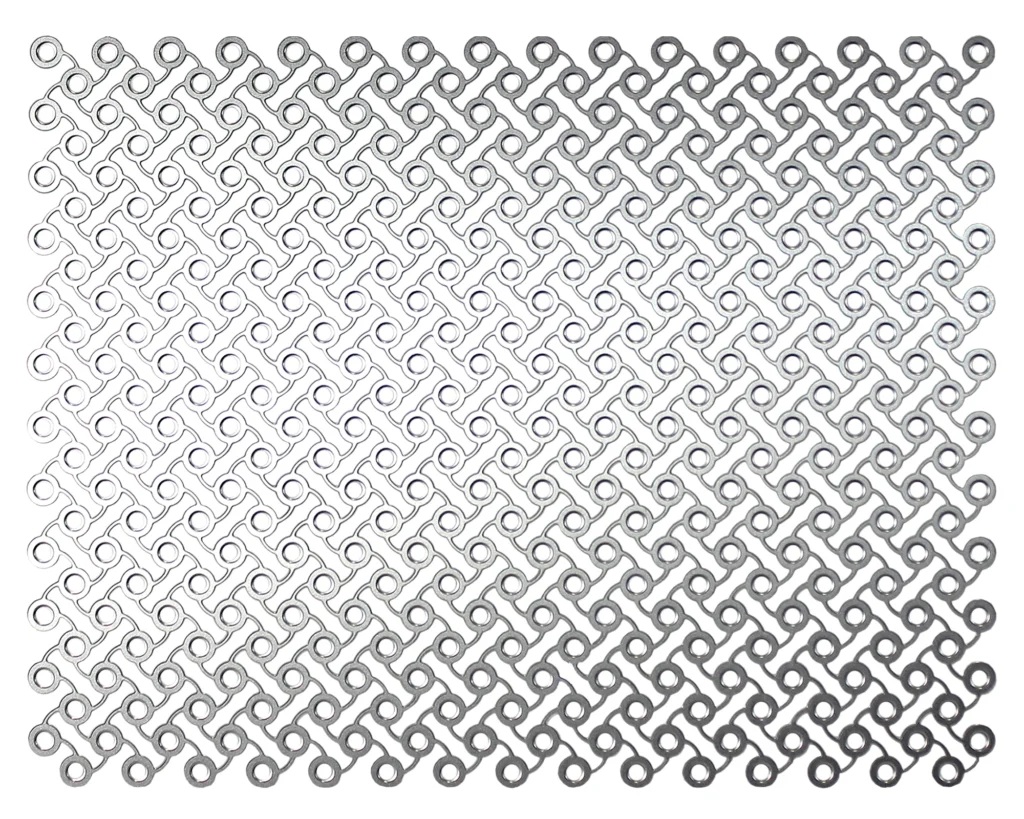
Advantages of chemical etching in medical device manufacturing
Chemical etching is the preferred process to fabricate parts for medical devices because the process delivers exceptional precision and accuracy while creating intricate and complex geometries. The heightened focus on precision is critical to meet the medical industry’s stringent safety standards.
Another critical advantage of chemical etching is its versatility since part and component manufacturers can utilize a wide range of materials while developing diverse medical solutions.
The chemical etching process ensures a burr-free and stress-free outcome, maintaining the structural integrity of the components. This eliminates the need for extensive post-processing, reducing production costs and lead times.
Chemical etching and its high-precision process also allow for rapid prototyping and customization, enabling faster design iterations with minimal tooling/setup costs and easily scalable to support high-volume production of precision metal parts.
The advantages of the photochemical machining process for metal medical implants are clear. Almost any pattern or texture can be etched into products, whether you need plates, mesh, or a combination. There are no burrs, and parts are consistent from lot to lot regardless of the number of parts manufactured. Since PEI manufactures implantables from pure titanium and its alloys, we can meet almost any design requirement in various thicknesses, sizes, and weights.
For example, flexible, lightweight medical-grade titanium mesh can be produced in any size or pattern style, with countersunk holes for flush-mounting screws.
Medical parts manufactured by PEI include:
Medical Implantables
Hearing Aid Components
Electrical Contacts
EMI/RF Shielding
Filters & Screens
Optical Encoder Discs
Surgical Blades
Surgical tools
Implantable Battery Anodes/Cathodes
We’ve developed a specialty in RF/EMI shielding. We invite you to learn more about our experience on our photo etching metal parts for medical apparatus page.
Applications of titanium medical device parts
Due to its versatility and exceptional properties, titanium is a highly sought-after material for various critical medical applications.
The biocompatibility, corrosion resistance, and high strength-to-weight ratio of titanium make it ideal for applications like orthopedic implants, where titanium components such as bone plates, blades, surgical tools, and spinal cages are widely used.
Titanium medical device parts are also utilized in cardiovascular devices, such as stents and pacemaker components, benefiting from the material’s durability and compatibility with human tissue.
PEI quickly and accurately manufactures intricate medical implants — including medical maxillofacial surgical mesh and plates used in reconstructive surgery — from all types of non-corrosive, body-compatible metals, including titanium and titanium alloys.
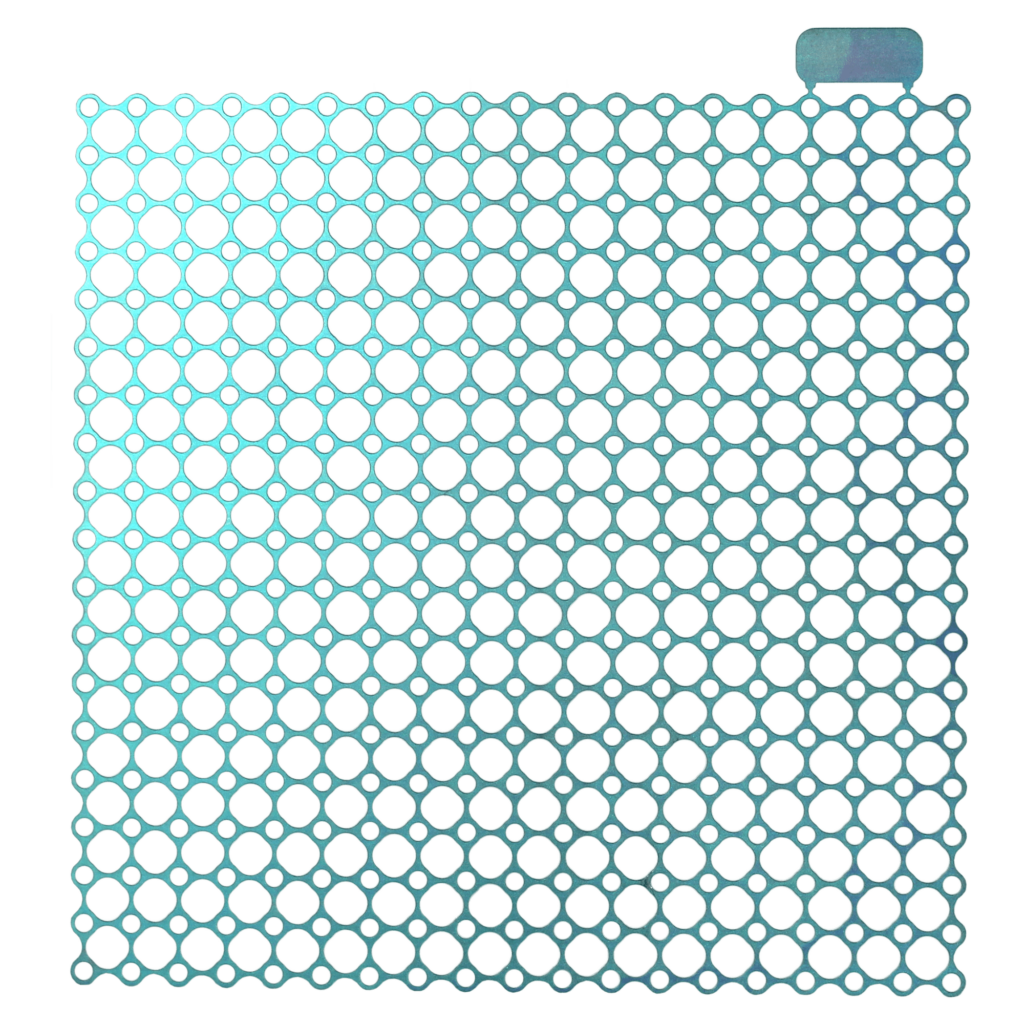
Ensuring safety and reliability in medical apparatus
Our teams have worked hard to establish expertise and build trust because we want every patient, doctor, or medical company to think “reliable, accurate, and safe” when they call us.
In addition to our decades of experience, we’ve achieved ISO-9002 certification, and our facility meets the most stringent international certification standards.
A proven team and a commitment to quality
Our experience dates back to 1968, and our shop in Milford, MA features dozens of photochemical etching tools that we’ve built ourselves and thousands of material part numbers in stock.
The PEI engineering team is viewed as an industry leader, helping to develop and refine parts and components used in life-saving applications.
We were one of the first manufacturers to etch titanium, and our expertise withthis complex process makes us a first call for the leading companies serving the medical industry.
Our customer’s first point of contact is the PEI customer service team, who can answer any question and typically responds to RFQs within 24 hours.
For a titanium etching partner you can rely on for precise medical device parts, contact the team at PEI or request a quote.
